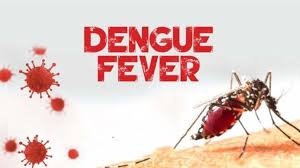The Ghana Health Service(GHS) says 36 cases of Dengue fever in Eastern and Central Regions as of July 17,2024.
” It is worthy to note that, of all these cases, only one (1) was admitted but has been discharged. The remaining are all being managed at home and are stablestable”.
This was contained in an update release by GHS singles by Director General Dr. Patrick Kumah Aboagye regarding the recent dengue outbreak initially announced on Sunday, 14th July 2024.
According to the GHS ,in response to the outbreak, a national team of entomologists and epidemiologists joined regional health officials to conduct a detailed investigation.
This investigation extended to neighboring districts in both the Eastern and Central Regions, where a surge in malarial-like conditions had been reported.
Numerous samples from suspected cases have been sent to the Noguchi Memorial Institute for Medical Research (NMIMR) for confirmation.
According to GHS,healthcare workers identified these cases using an appropriate case definition.
Dengue symptoms include a sudden onset of high-grade fever, severe headache (mostly in the forehead), body aches, muscle, bone and joint pains, nausea and/or vomiting, and rash.
Ongoing activities to address the outbreak include orienting clinicians on the case definition at all healthcare levels, including CHPS compounds, conducting community durbars, and holding meetings with key stakeholders such as District Health Management Teams, M/DCEs, and local chiefs.
Ghana Health Service is also embarking on risk communication efforts in the affected districts.
The Ghana Health Service urges the general population, especially those in the affected areas, to take measures to prevent mosquito bites.
These measures include wearing protective clothing, using mosquito repellents, ensuring water containers are tightly covered, discarding water in unused containers, and properly disposing of items that could collect water, such as empty cocoa pods and coconut shells.
Additionally, people are advised to sleep in insecticide-treated bed nets if sleeping during the day or outside and to avoid self-medication, instead reporting to the nearest health facility when experiencing high-grade fever.
Source: Mybrytfmonline.com/Obed Ansah




















































